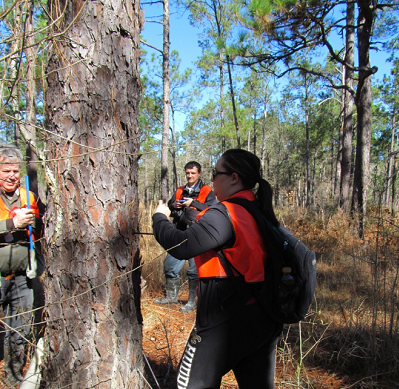Environmental Science
Growing populations, increased urbanization, agriculture, wetland loss, and climate change are placing enormous pressures on our environmental resources. Environmental scientists study these natural geological, chemical, and biological resources, as well as the dynamics of the coupled natural-human relationships that shape these systems.
The growing need for the sustainable management of environmental resources has driven the skyrocketing demand for environmental scientists. This is particularly true in Louisiana where we host 40% of the wetlands in the U.S., while maintaining strong industrial and agricultural traditions with petroleum exploration and refining, fisheries, and more.
Our environmental science degree has three concentrations you can choose from: soil and water, environmental quality, and digital geography. All three include core coursework in biology, chemistry, physics, math, geology, soils, and geographic information syste ms. The environmental science major will give you an overview of an environmental challenges, as well as techniques for solving those challenges.
ms. The environmental science major will give you an overview of an environmental challenges, as well as techniques for solving those challenges.
Soil & Water Conservation Concentration
The soil and water concentration focuses on the management challenges on soil and water conservation/management with a strong emphasis on soils. Students learn basics and applied aspects of wetland soils, soil classification and survey, environmental geology, analytical chemistry, and clay mineralogy. Graduates are well-suited for jobs with agencies managing parks, soil and water resources, environmental quality, and environmental remediation.
Environmental Quality Concentration
The environmental quality concentration focuses on the remediation and site restoration and management of water quality, and soil quality. In this concentration, students learn the basic and applied aspects of air quality, water quality, environmental toxicology, microbiology, soil quality and environmental geology. Graduates are well-suited for jobs with agencies managing environmental quality, parks, soil and water resources, environmental remediation, leadership in education, local government, and environmental advocacy.
Digital Geography Concentration
The digital geography concentration focuses on GIS and Remote Sensing applications for understanding and management of natural resources. Students learn basic and applied aspects of wetland soils, landscape evolution, and coastal science and develop expertise on Geographic Information Systems, Remote Sensing, Image Interpretation, and Mapping. Graduates are well suited for jobs with agencies involved in GIS mapping, use of satellite images, natural resources planning and management, and spatial modeling.
